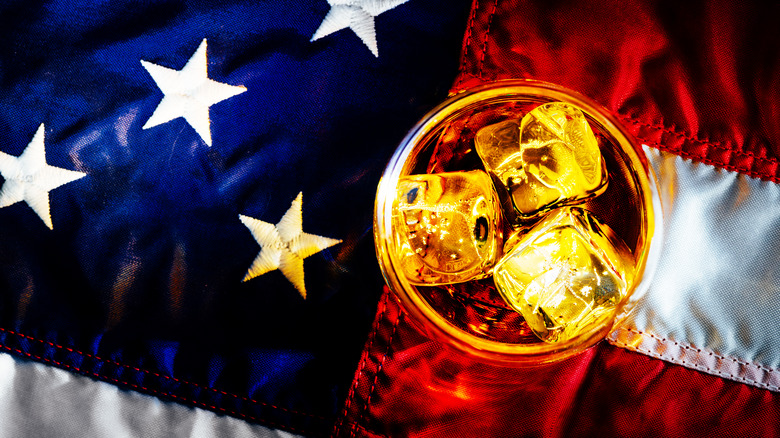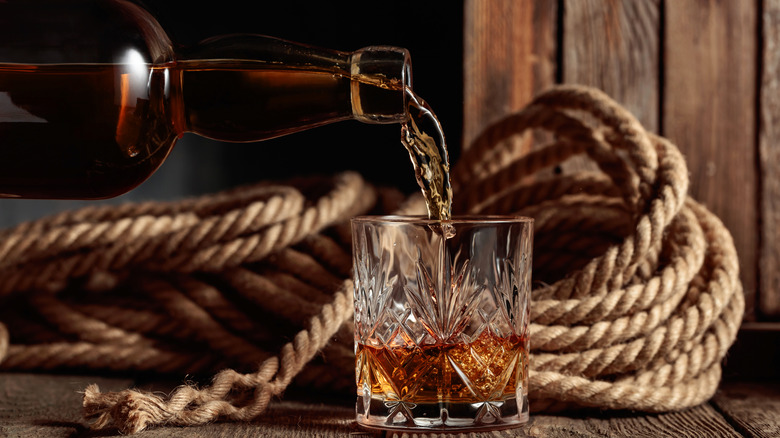How Bourbon Officially Became America's Native Spirit
There are many things in life that seem obvious in hindsight but which were anything but obvious before the truth was ultimately discovered. Take the fact that the planet revolves around the Sun, for example, or that "Lost" was an incoherent mess of a television show. Today, it feels obvious that bourbon is America's Native Spirit, but this wasn't always the case.
The world's very first bourbon dates back to the 18th century around the time of the Revolutionary War. It was largely the product of Irish and Scottish immigrants adapting their whiskey mash bills to the abundant amounts of corn being grown in the region. But despite its clear American origins, it wasn't until much later that its heritage was officially recognized. In 1963, a member of the House of Representatives from Kentucky named John C. Watts submitted a bill which sought to establish bourbon as a distinctly American product. Watts saw other countries taking steps to protect their domestic whiskey market and sought the same protection for the many bourbon distilleries operating out of his home state. The bill passed into law in 1964, legally designating bourbon as "a distinctive product of the United States."
But "a distinctive product" doesn't quite have the charismatic bravado of America's Native Spirit. The 1964 law passed into obscurity for many years before Kentucky Senator Jim Bunning would adapt the designation into the more PR-friendly title of America's Native Spirit in 2007 as he pushed for legislation marking September as Bourbon Heritage Month.
A complex practice with historical precedent
As we mentioned, the original 1964 legislation was at least partly in response to similar steps taken by other industries. For example, scotch became legally defined in U.K. law in 1933 as being a product of Scotland. In a globalized economy, these legal protections are highly important for regional producers as the burgeoning Japanese whisky industry is currently discovering. The need for governments to legally protect their domestic industries has only become more obvious in recent decades, but the practice goes back centuries. The first A.O.C. (the French version of this practice) was given to Roquefort cheese all the way back in the 1400s.
As for why these designations are important, the answer is complicated. A lot of it has to do with consumer preferences. When Japanese whisky was small and unknown, there was no real need for protection. Now that Japanese whisky has blown up and consumer demand is outpacing supply, the government is incentivized to keep foreign companies from masquerading as Japanese whisky manufacturers.
If you take the global scale of our economy and combine it with consumer demand for specific luxury goods, you get a pretty good sense of the situation. There had been bourbon legislation before 1964, but these specific issues hadn't presented themselves yet. For example, in 1897 the Bottled In Bond Act was focused on improving the quality of bourbon because that was the most pressing issue. Foreign competition would come much later.

